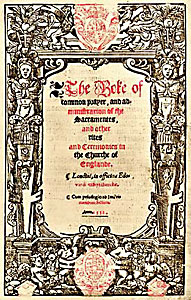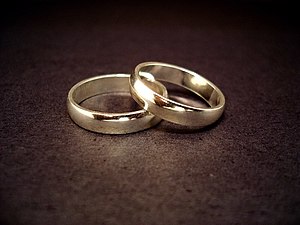Marriage. The Big M. The Ball & Chain. The death of bachelorhood. How do we marry?
Christian/Catholic Marriage
Commonly, albeit mistakenly, referred to as traditional marriage, religious marriage is the exchange of vows you can recite, through your tears, with every soap opera/nighttime drama couple walking down the aisle or in a Vegas drive through chapel.

You read it here.
The well-recited vows come from the Common Book of Prayer (1594).
The officiant begins, We are gathered here in the presence of God and these witnesses, to join in the bonds of holy matrimony, Dick and Jane.”
I take you to be my lawfully wedded spouse, to have and to hold, from this day forward and forsaking all others, for better or for worse, for richer or poorer, in sickness and in health, to love, honor and cherish, ’til death do us part, .”
We can all recite it like a Miranda warning. Some even feel they have the same effect.
Jewish Marriage
Traditional Jewish marriages require a vow to pursue the faith of Israel. Alternately, bride and bridegroom answer the same questions and state the same vows.
Do you Jane, take Dick, to be your husband?
“I do”
Do you promise to love, cherish and protect him, whether in good fortune or in adversity, and to seek with him a life hallowed by the faith of Israel?
“I do”
Jane, as you place this ring upon the finger of Dick, speak to him these vows:
“With this ring be thou consecrated unto me as my husband, according to the law of God, and the faith of Israel.”

One of the colorful Buddhist variations
The ring portion of the Jewish ceremony is adopted by Judeo-Christian religions omitting the reference to Judaism.
Buddhist Marriage
The simple exchange of vows between Buddhists is reflective of other religions in the conditions of marriage.
In the future, happy occasions will come as surely as the morning. Difficult times will come as surely as the night. When things go joyously, meditate according to the Buddhist tradition. When things go badly, meditate. Meditation in the manner of the Compassionate Buddha will guide your life. To say the words ‘love and compassion’ is easy. But to accept that love and compassion are built upon patience and perseverance is not easy.”
Buddhism is a required portion of the vows for marriage to be consecrated and valid.

Courthouse, yard, drive-thru chapel.
Civil Marriage
Naturally, civil unions come sans the overt tones of a superior being and survive under the auspices humans have free will to engage in unions as they see fit, the law notwithstanding. The vows are generally less stilted and steeped in Olde English tradition.
Before these witnesses, I vow to love and care for you for as long as we both shall live. I take you, with all your faults and strengths, as I offer myself to you with all my faults and strengths. I will help you when you need help, and turn to you when I need help. I choose you as the person with whom I will spend my life.”
Sounds similar, but not matching, to the religious vows, without having a supreme being overseeing the matter.
All the Rest
Thousands of variations of wedding vows exist. Everyday, couples choose to design their own vows to exchange which represent their specific relationships. They include friendship, love, fidelity, happiness and sorrow, health and not, wealth and poverty, children, family and time.
As long as the officiant is satisfied their exchange of vows represents a sufficient commitment to one another, the legal bond of marriage is formed.
Church vs. State
Most countries are secular. Each requires different conditions to be met to acknowledge marriage as a legal status. The majority recognize the religious ceremony as concurrent with the civil ceremony by licensing the officiant.
This precludes the need for two ceremonies: Since the religious officiant is also licensed by the state, the religious vows are merely an addition to the civil vows required to validate the marriage in the eyes of the State.
What is the difference?
Regardless of the words exchanged, a legal union is formed. Marriage is a contract between spouses to remain a unit in what they do from the date of marriage forward.¹ Despite some semantics, all wedding vows essentially bind the parties to stay together, regardless of transient, situational discomfort, until death or legal dissolution of the marriage, where available.²
Which vows do you think all marriages should contain? Which vows do you think should be omitted? Did you write your own vows? How does the exchange of vows change your commitment to Mate?
¹ Prenuptial agreements change this particular property of the marriage contract.
² Divorce, annulment and dissolution are different and incur different responsibilities and ramifications.




lorrelee1970
/ January 2, 2012I’m not a fan of obey. After reading those, I really like what is said in the civil ceremony.
Red
/ January 2, 2012I really like the second to last line of that one. The only fans of obey are the devoutly religious and men.
lorrelee1970
/ January 3, 2012Of course.
wing (@wing_phy)
/ January 5, 2012This is going to go off track a little, Hindu wedding ceremony is an elaborate and lively event. They do not recite vows but take a Seven Steps, or Saptha Padhi, around a flame (honoring the fire god Agni) to spell out the promises the couple makes to each other:
“Let us take the first step to provide for our household a nourishing and pure diet, avoiding those foods injurious to healthy living.”
“Let us take the second step to develop physical, mental, and spiritual powers.”
“Let us take the third step to increase our wealth by righteous means and proper use.”
“Let us take the fourth step to acquire knowledge, happiness, and harmony by mutual love and trust.”
“Let us take the fifth step so that we are blessed with strong, virtuous, and heroic children.”
“Let us take the sixth step for self-restraint and longevity.”
“Finally, let us take the seventh step and be true companions and remain lifelong partners by this wedlock.”
Red
/ January 5, 2012That is lovely! I especially like the fourth step! Thank you for sharing and definitely not off target. Red.